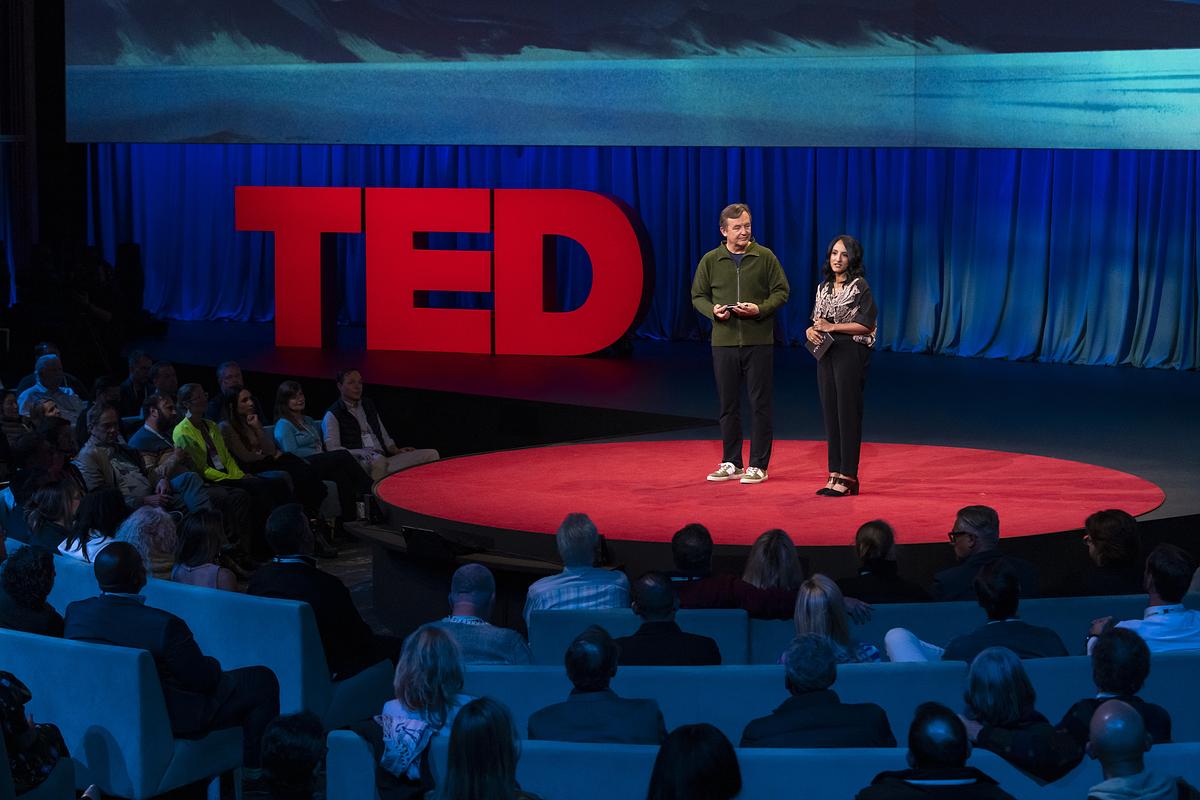
Head of TED Chris Anderson and Audacious Project Executive Director Anna Verghese host Session 7 of TED2023: Possibility on April 19, 2023, in Vancouver, BC, Canada. (Photo: Ryan Lash / TED)
In the soul-seeking Session 7 of TED2023 a group of extraordinary individuals considered counternarratives to the doom-and-gloom that pervades much of modern media and sought to recalibrate our thinking on what it means to be human.
The event: Talks from Session 7 of TED2023: Possibility, hosted by head of TED Chris Anderson and Audacious Project Executive Director Anna Verghese
When and where: Wednesday, April 19, 2023, at the Vancouver Convention Centre in Vancouver, BC, Canada
Speakers: Natalie Cargill, Sixto Cancel, Richard V. Reeves, Coleman Hughes, Anne Morriss, Kevin Stone, Sarah Jones, Sheena Meade

Singer-songwriter Maria Arnal performs at Session 7 of TED2023: Possibility on April 19, 2023, in Vancouver, BC, Canada. (Photo: Ryan Lash / TED)
Performance: Singer-songwriter Maria Arnal lit up the TED stage, weaving together folk and techno-pop to create a dazzling soundscape.
The talks in brief:
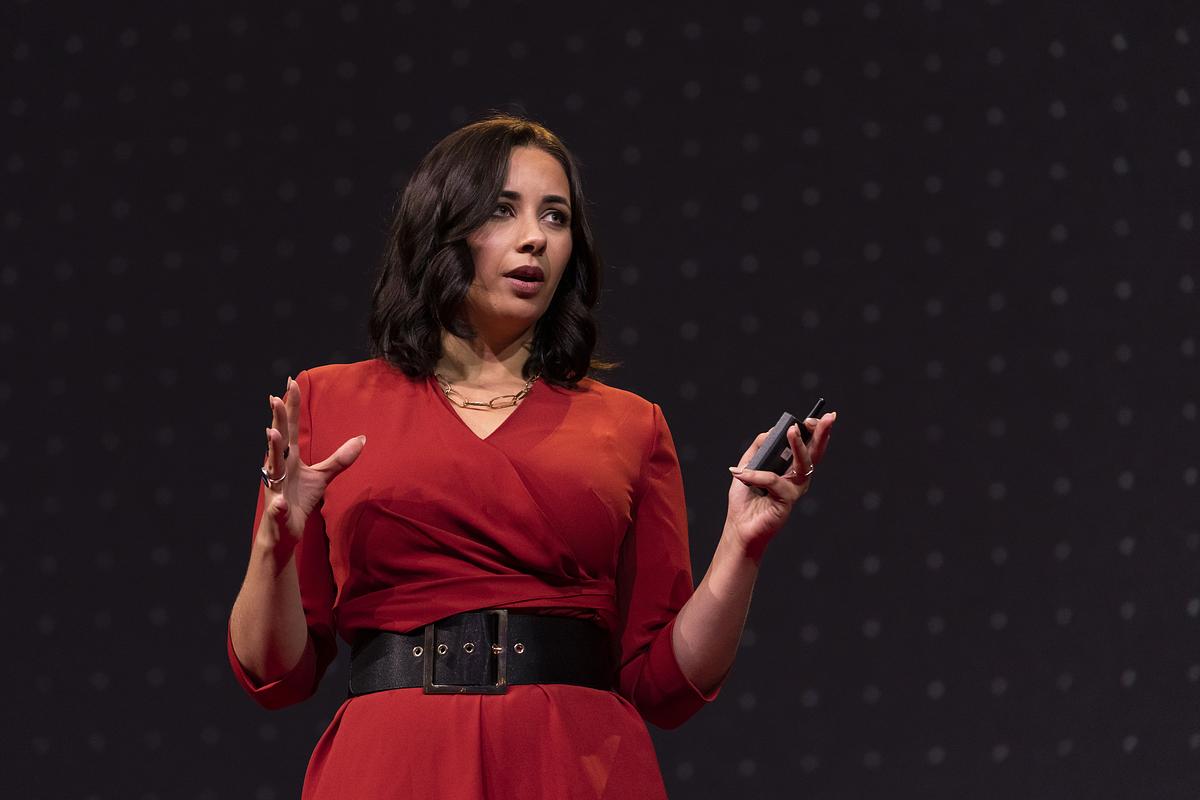
Philanthropic mastermind Natalie Cargill speaks at Session 7 of TED2023: Possibility on April 19, 2023, in Vancouver, BC, Canada. (Photo: Gilberto Tadday / TED)
What would you do with 3.5 trillion dollars? Philanthropic mastermind Natalie Cargill has used this thought experiment, grounded in thousands of hours of expert research, to investigate what it would take to actually solve some of our most pressing problems. With this amount of money, she says, we could tackle extreme poverty, pandemic prevention, climate change, nuclear war, runaway AI and more – with just one year’s worth of funding. Where would this money come from, you may ask? If everyone in the global top one percent of earners (i.e., people making $60,000 a year or more after tax) gave away just ten percent of their income for a year, we’d be there. Cargill’s point is that we’re not doomed to suffer through unnecessary and avoidable issues. “Huge problems can be solved, and philanthropy can be good,” she says.
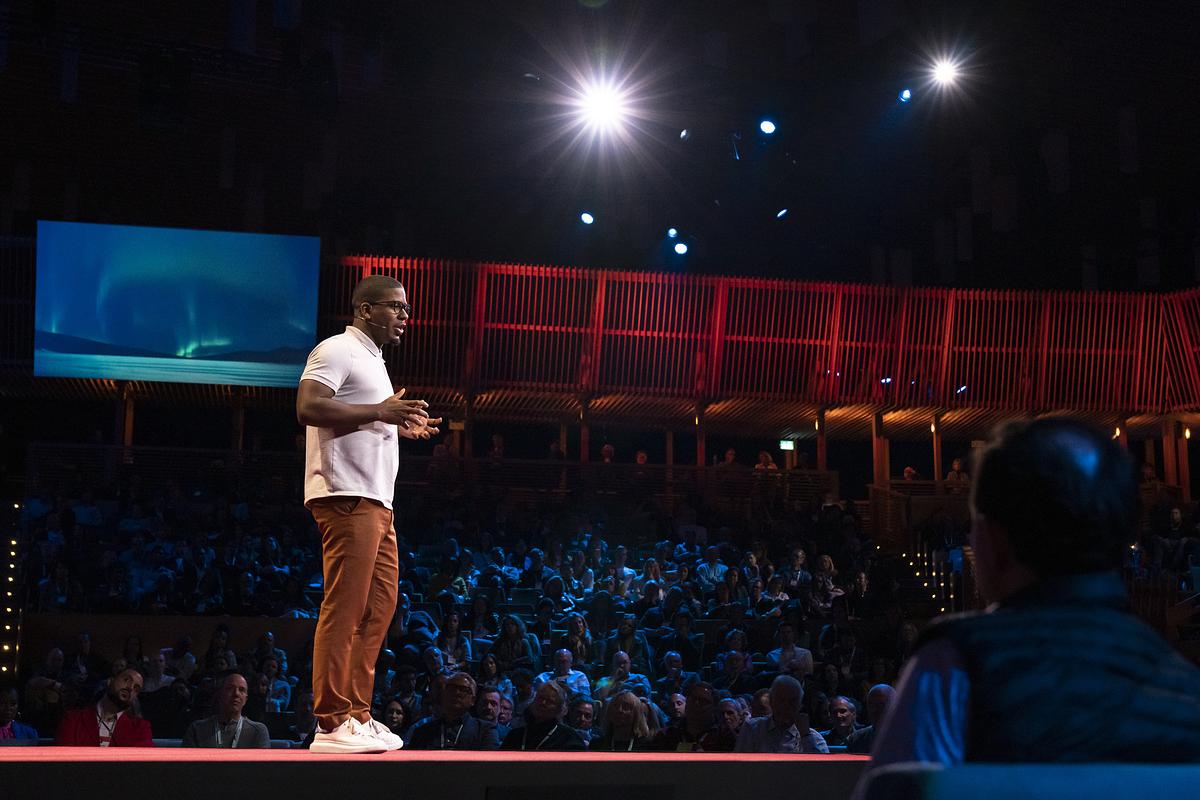
Foster care transformation advocate and 2023 Audacious Project grantee Sixto Cancel speaks at Session 7 of TED2023: Possibility on April 19, 2023, in Vancouver, BC, Canada. (Photo: Ryan Lash / TED)
As adults, foster youth are two times more likely than war veterans to experience and suffer from PTSD, says child welfare advocate and 2023 Audacious Project grantee Sixto Cancel. He shares his story of entering foster care at 11 months old, being placed with a foster family at nine years old and then, at 15, collecting enough evidence to prove he was unsafe in that home and re-entering the system. Eventually, Cancel was reunited with relatives who happened to live only 58 miles away from where he grew up, and while he was grateful, he couldn’t help but think about how different his life could have been had he been raised by people who loved him all along. With this in mind, Cancel founded Think of Us: a nonprofit dedicated to engaging with youth, parents and relatives to redesign foster care into a system where children are raised by kin in supportive and safe environments. He shares three urgent messages: (1) Children should be raised by their families and the majority of foster care should be replaced with kinship care. (2) We need to center those who have been impacted by the system when redesigning it. (3) We all have a role to play in this cause. “Together … we can literally ensure that millions of children are living in a home where they can say, ‘I am loved,'” says Cancel.
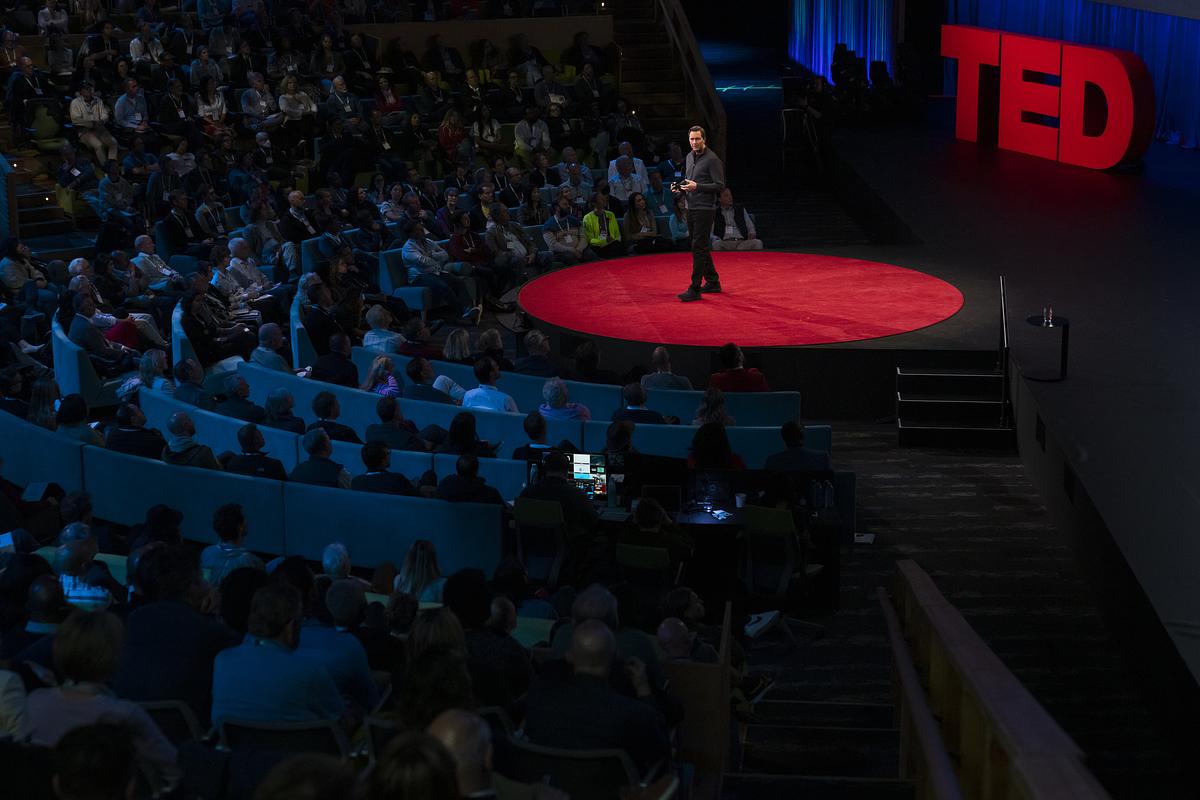
Social mobility scholar Richard V. Reeves speaks at Session 7 of TED2023: Possibility on April 19, 2023, in Vancouver, BC, Canada. (Photo: Gilberto Tadday / TED)
While researching gender inequality in education, social mobility scholar Richard V. Reeves made a surprising discovery: when it comes to a school without barriers, girls have the academic advantage. It’s not a question of intelligence; it’s simply that the part of the brain associated with organization and impulse control develops later in boys than girls — meaning doing chemistry homework can be a lot more difficult for male students. Reeves suggests a more equitable school system would start boys a year after girls and makes the case for hiring more male teachers — particularly in English, where more young men struggle — to give boys role models in the classroom. “The future cannot be female. Nor of course, can the future be male. The future has to be for every single one of us … We have to rise together,” says Reeves.
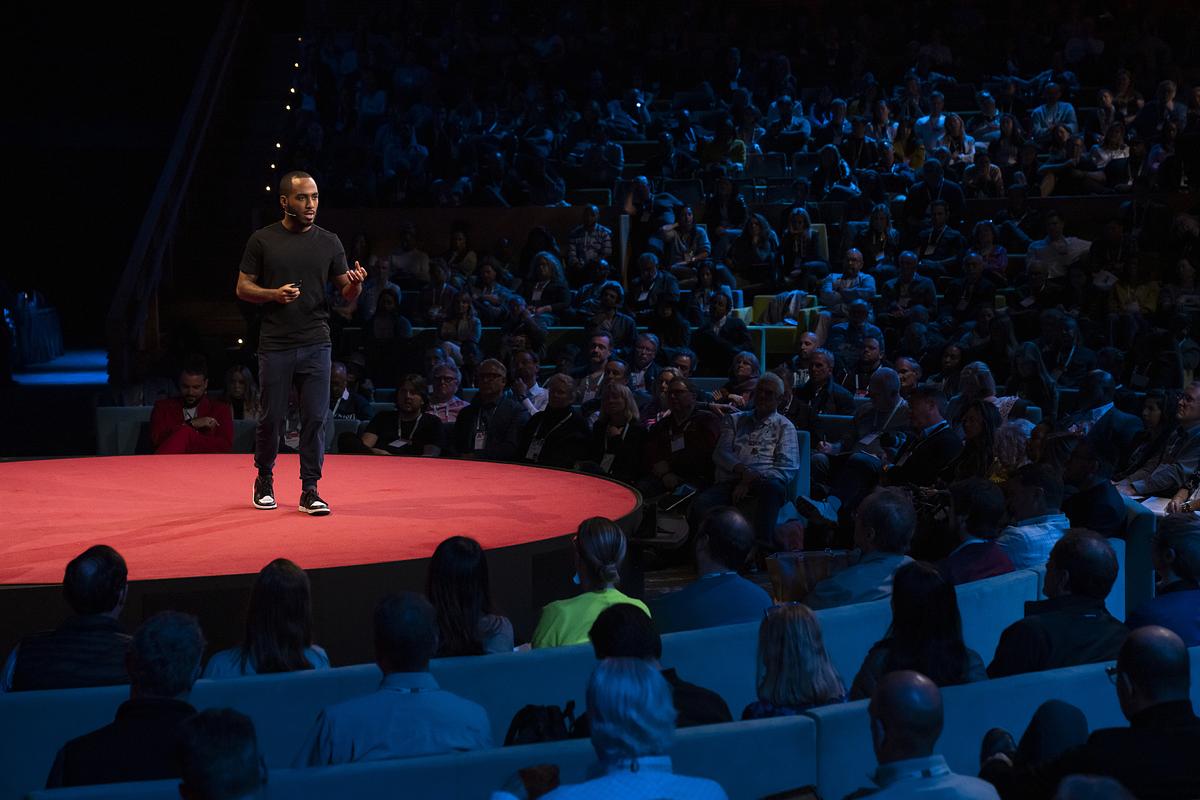
Podcast host Coleman Hughes speaks at Session 7 of TED2023: Possibility on April 19, 2023, in Vancouver, BC, Canada. (Photo: Ryan Lash / TED)
The percentage of Black and white Americans who felt good about race relations nosedived from 2013 to 2021. Given this concerning trend, writer and podcast host Coleman Hughes thinks we need a new racial paradigm. Our current fixation on racial identity — where “we let racial essences define who we are” — does more harm than good, he says. He advocates for rehabilitating a now-controversial ideology: colorblindness. Far from being conservative or white supremacist, as some critics allege, Hughes says colorblindness has its roots in the US antislavery movement and is the “best principle with which to govern a multiracial, multiethnic democracy.” But wouldn’t a colorblind approach render us unable to fight racism, gutting key policies like affirmative action? Hughes thinks replacing race-based policies with class-based ones would both reduce inequality and ease racial tensions. Class is almost always a better proxy for disadvantage than race, he says, and class-based policies are less divisive because they “do not penalize anyone for immutable biological traits.”
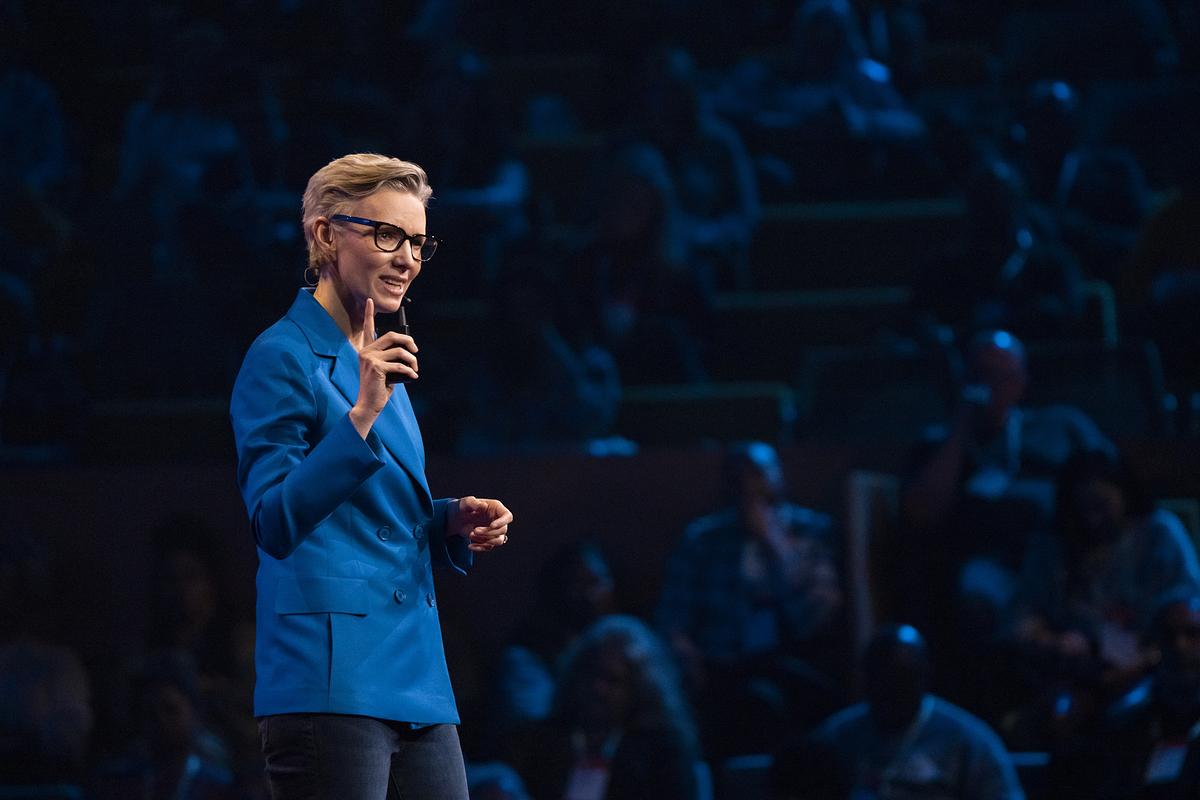
Leadership visionary Anne Morriss speaks at Session 7 of TED2023: Possibility on April 19, 2023, in Vancouver, BC, Canada. (Photo: Ryan Lash / TED)
Leadership visionary and cohost of the TED Audio Collective podcast Fixable Anne Morriss offers five steps to solve any workplace problem, starting with curiosity. First, she says, ask questions that get to the root of the issue, being open to the idea that it could be you. Next, formulate a “good enough plan,” and then talk to those with different perspectives to build trust and improve your plan. Finally, honor the past as you set a vision for the future, recognizing what people don’t want to lose. In the last step, take action with urgency, effectively putting into place everything you’ve learned in the previous steps. “The most effective leaders we know solve problems at an accelerated pace, while also taking responsibility for the success and the wellbeing of their customers and employees and shareholders,” says Morris. “They move fast and fix things.”
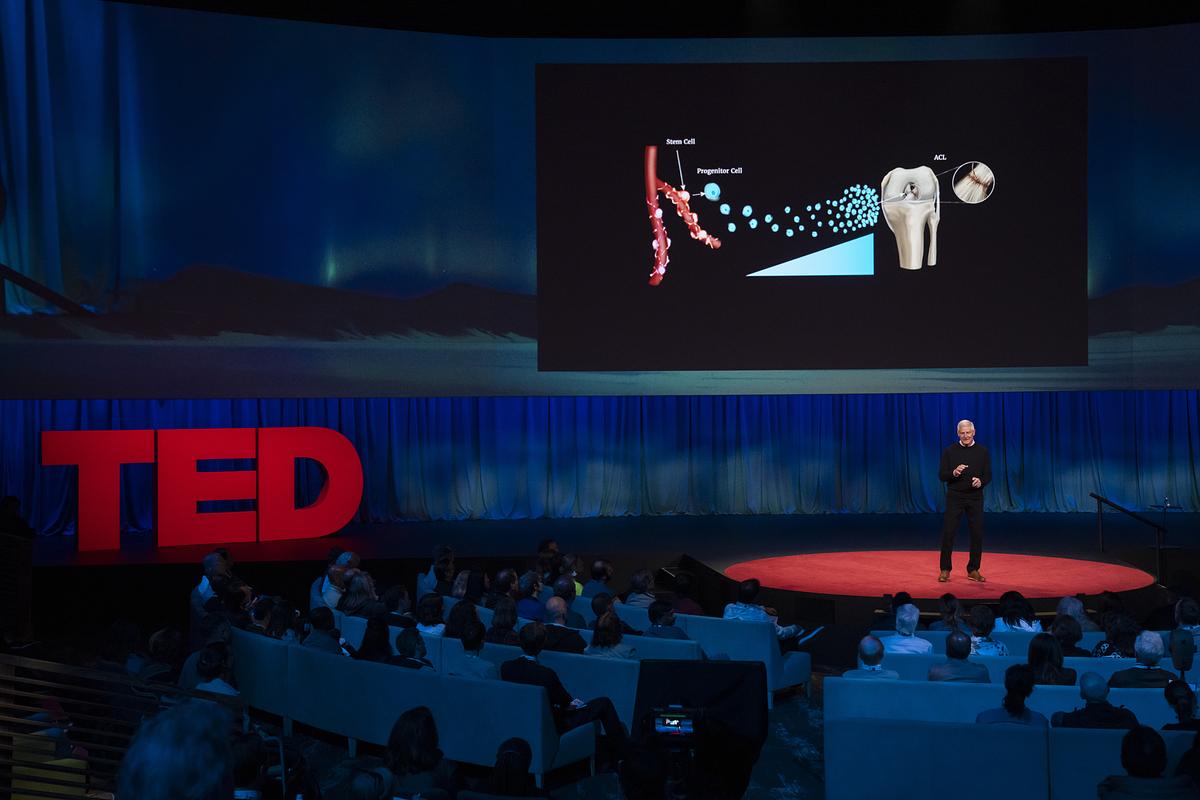
Orthopedic surgeon Kevin Stone speaks at Session 7 of TED2023: Possibility on April 19, 2023, in Vancouver, BC, Canada. (Photo: Ryan Lash / TED)
From synthetic embryos to lab-grown skin, we live in a brave new world of stem cell advances. So why can it still take years to recover from a knee injury? When you tear your ACL, the stem cells in your body produce daughter cells called progenitor cells that orchestrate the body’s healing response. But this response only activates after the initial injury and can prove insufficient over time. By strengthening this response, orthopedic surgeon and TED community member Kevin Stone hopes to make ACL injury recovery a matter of weeks, not months or years.

Polymorphic filmmaker Sarah Jones speaks at Session 7 of TED2023: Possibility on April 19, 2023, in Vancouver, BC, Canada. (Photo: Ryan Lash / TED)
With chameleonic ease, polymorphic filmmaker Sarah Jones slips into and out an array of characters in a talk exploring cancel culture, which she defines as when people (both powerful and marginalized) are “silenced, excluded, disempowered and disinvited from the larger conversation.” Jones shares her own painful experience being canceled ahead of the release of her 2022 film Sell/Buy/Date, digging into the nuances of this much-discussed, often nebulous phenomenon. In her view, cancellation doesn’t improve the larger culture of inequality but instead creates more hurt and angry people. She thinks the solution to actually holding others to account is to start by being self-accountable — noticing any tendencies in ourselves that could be hurtful and trying to unlearn them — and then doing the hard work of trying to help others see the biases they may be blind to.
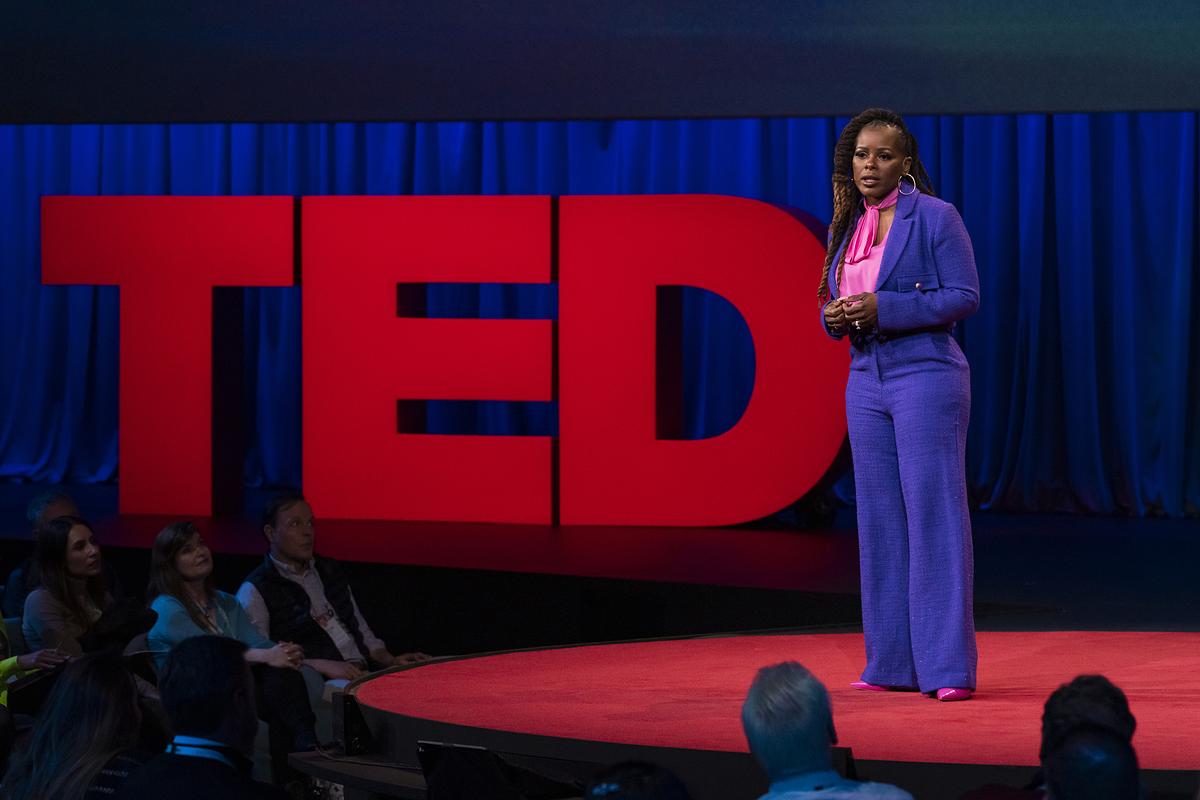
Second chance advocate and 2023 Audacious Project grantee Sheena Meade speaks at Session 7 of TED2023: Possibility on April 19, 2023, in Vancouver, BC, Canada. (Photo: Gilberto Tadday / TED)
“For many Americans, a criminal record — even for a petty offense — can hold them back forever,” says Desmond Meade, introducing his wife, Sheena Meade, CEO of the Clean Slate Initiative and a 2023 Audacious Project grantee. Like many, her future was heavily affected by a minor conviction (bouncing a check to pay for her family’s groceries), and this was enough to bar her from housing and education opportunities for years later. Around 100 million Americans — or one in three — have an arrest or conviction record. More than 30 million of them are eligible for clearance, but fewer than 10 percent pursue it because it’s expensive and many don’t even know it’s an option. Meade makes the case for clean slate laws that automate the sealing of arrest and conviction records after people have completed their sentence and remain crime-free for a set period of time. In the last three years, she and her team have helped pass laws in six states, helping millions move on with their lives. With the Audacious Project, they’re working towards passing these laws in 50 states, so an additional 14 million people get a true second chance.
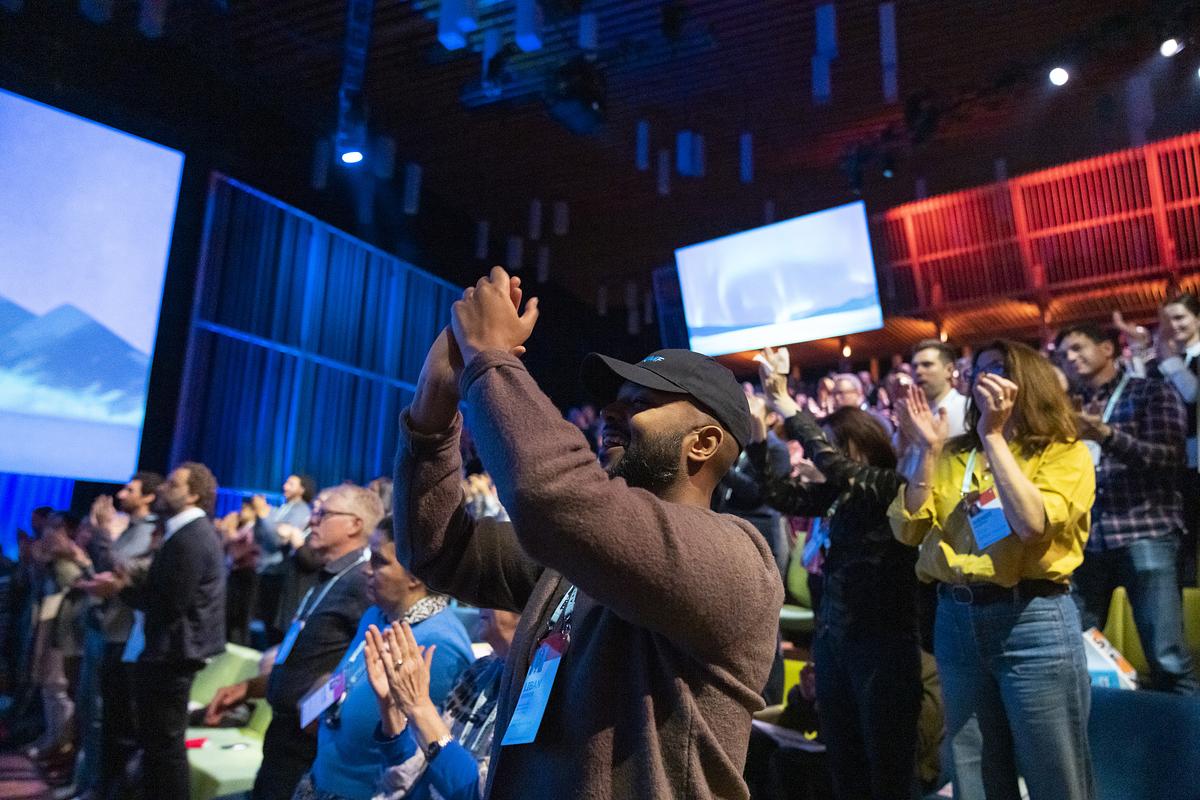
TED community members applaud the speakers of Session 7 of TED2023: Possibility on April 19, 2023, in Vancouver, BC, Canada. (Photo: Gilberto Tadday / TED)